What Are the Different Ways to Insulate a Garage Ceiling?
By Editorial Team
Updated on November 8, 2023
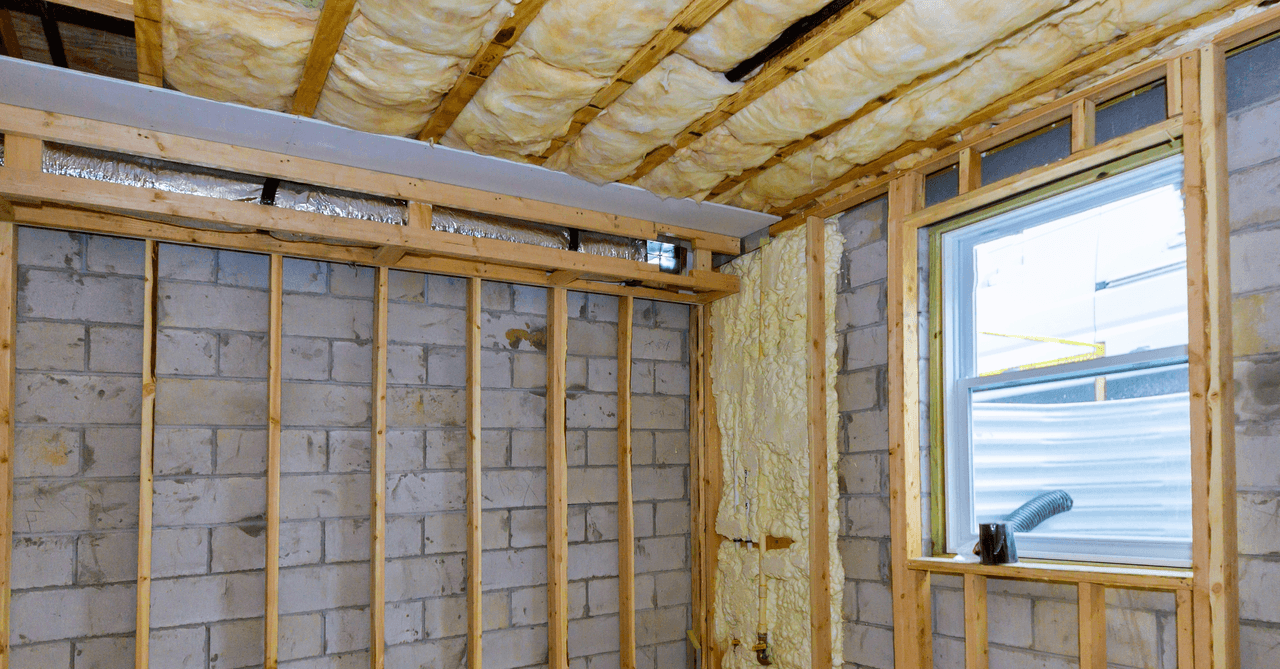
A garage ceiling can be insulated using several types of insulation materials. If you’re having a hard time wrapping your head around which ones, rest assured, you’ve come to the right place. In this article, we compared 14 different materials based on their thermal characteristics.
So not only will you find the most insulating materials, but you’ll also find those that are most compatible with the insulation method that you may want to carry out at home.
How to Choose the Best Insulation Material for a Garage Ceiling
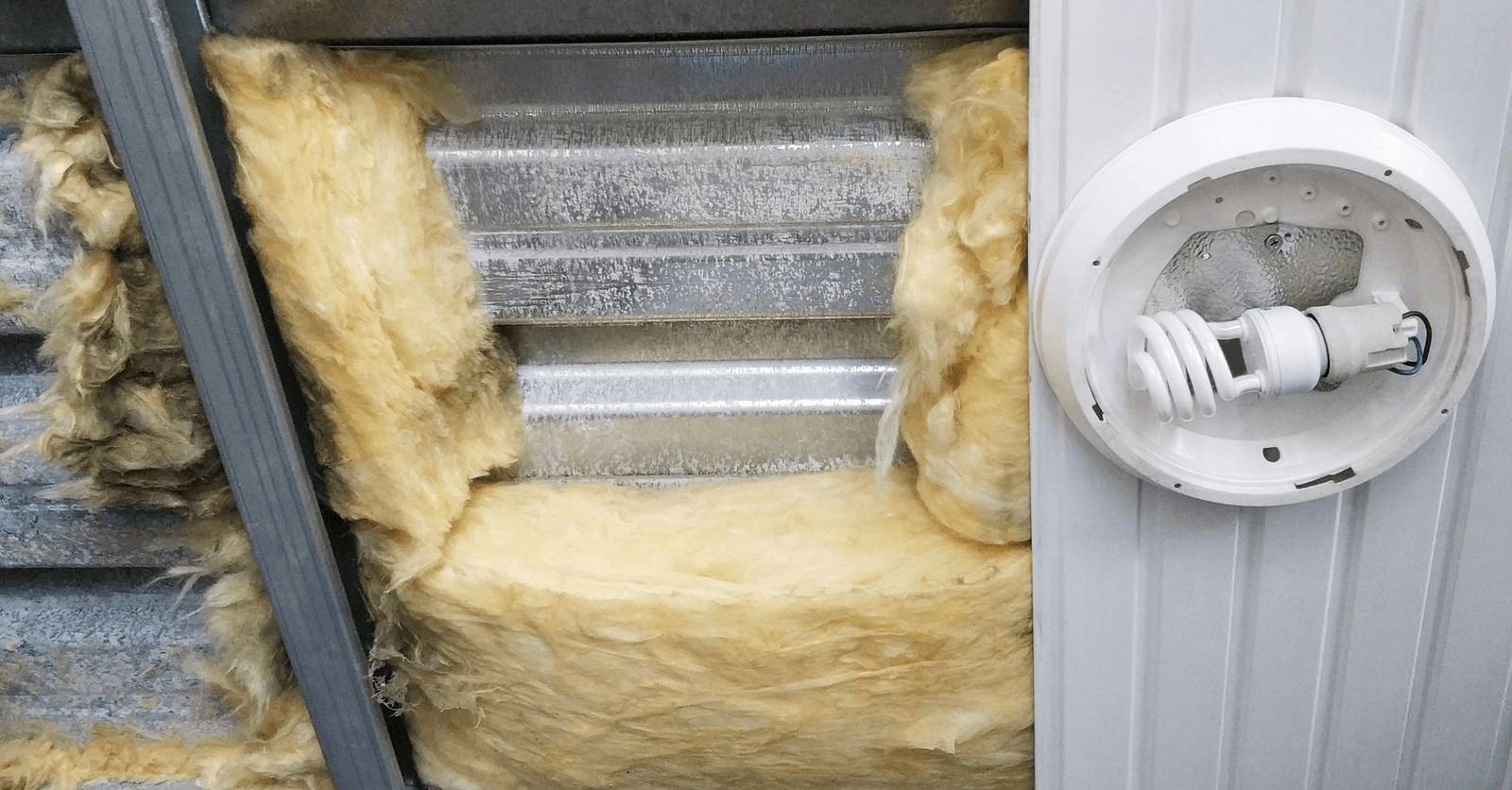
Source: Canva
To figure out which insulation materials are best for a garage ceiling, we looked at 14 different materials based on the following 5 thermal characteristics:
Thermal conductivity (K-value)
Thermal resistance (R-value)
Diffusivity
Effusivity
Thermal lag (in hours)
Before we get ahead of ourselves, here’s a list of the best garage insulation materials:
Rank | Material |
1 | Polyurethane (latest technology) |
2 | Extruded polystyrene (common) |
3 | Expanded polystyrene (common) |
4 | Cork (natural) |
5 | Rockwool (loose-fill) |
6 | Polyurethane (common) |
7 | Expanded polystyrene (high-density) |
8 | Expanded cork |
9 | Rockwool (medium-density) |
10 | Expanded cork (loose-fill) |
11 | Extruded polystyrene (XPS HFC) |
12 | Extruded polystyrene (XPS) |
13 | Expanded polystyrene (medium-density) |
14 | Rockwool (low-density) |
Now, let’s take a closer look at the different insulation material values:
R-Value (for an 8-inch thickness)
An R-value stands for a material’s thermal resistance coefficient and is based on two factors:
Thickness
Thermal conductivity
A material’s thermal conductivity is quantified by a numerical value, and the lower that value is, the better the material’s insulation properties are. However, thermal resistance, measured by the R-value is quite the opposite: the higher the R-value, the better the insulation performance.
Rank | Insulation material | Conductivity | R-value |
1 | Polyurethane (latest technology) | 0.025 | 8.05 |
2 | Extruded polystyrene (common) | 0.031 | 6.5 |
3 | Expanded polystyrene (common) | 0.035 | 5.7 |
4 | Polyurethane (common) | 0.035 | 5.7 |
5 | Expanded polystyrene (high-density) | 0.040 | 5 |
6 | Expanded cork (loose-fill) | 0.040 | 5 |
7 | Cork (natural) | 0.040 | 5 |
8 | Extruded polystyrene (XPS HFC) | 0.040 | 5 |
9 | Extruded polystyrene (XPS) | 0.042 | 4.8 |
10 | Rockwool (medium-density) | 0.044 | 4.55 |
11 | Rockwool (low-density) | 0.050 | 4 |
12 | Expanded polystyrene (medium-density) | 0.052 | 3.8 |
13 | Rockwool (loose-fill) | 0.060 | 3.3 |
14 | Expanded cork | 0.090 | 2.2 |
Thermal Diffusivity and Effusivity
Thermal diffusivity and effusivity are significant thermal properties to consider when choosing an insulation material meant for a garage ceiling. By selecting a material with decent thermal properties, you’re in turn ensuring that your garage is efficiently insulation and safeguarded.
Thermal diffusivity
Thermal diffusivity is a material’s capacity to transmit heat through conduction. An excellent thermal diffusivity is typically indicated by a value below 0.2, whereas a value exceeding 1 is considered exceptionally poor.
Rank | Insulation Material | Diffusivity |
1 | Expanded cork | 0.16 |
2 | Cork (natural) | 0.17 |
3 | Expanded cork (loose-fill) | 0.27 |
4 | Extruded polystyrene (common) | 0.63 |
5 | Polyurethane (latest technology) | 0.64 |
6 | Rockwool (medium-density) | 0.61 |
7 | Polyurethane (common) | 0.71 |
8 | Extruded polystyrene (XPS) | 0.83 |
9 | Extruded polystyrene (XPS HFC) | 0.86 |
10 | Expanded polystyrene (high-density) | 0.97 |
11 | Expanded polystyrene (common) | 1.20 |
12 | Rockwool (loose-fill) | 1.46 |
13 | Rockwool (low-density) | 2.20 |
14 | Expanded polystyrene (medium-density) | 2.99 |
Thermal effusivity
As for thermal effusivity, it indicates a material’s ability to transmit heat through radiation. The lower the effusivity coefficient, the better the insulation material is.
As such, a value above 1,000 suggests poor insulation capabilities in a material, while a value below 35 indicates excellent insulation properties.
Rank | Insulation material | Effusivity |
1 | Expanded polystyrene (medium-density) | 30.08 |
2 | Expanded polystyrene (high-density) | 30.60 |
3 | Expanded polystyrene (common) | 31.86 |
4 | Polyurethane (latest technology) | 32.49 |
5 | Rockwool (low-density) | 33.66 |
6 | Extruded polystyrene (common) | 38.97 |
7 | Polyurethane (common) | 41.41 |
8 | Extruded polystyrene (XPS HFC) | 43.08 |
9 | Extruded polystyrene (XPS) | 46.17 |
10 | Rockwool (loose-fill) | 49.72 |
11 | Rockwool (medium-density) | 56.32 |
12 | Expanded cork (loose-fill) | 76.94 |
13 | Cork (natural) | 96.18 |
14 | Expanded cork | 227.68 |
Thermal Lag
Thermal lag refers to the time period (delay) during which an insulation material can inhibit heat transfer.
Rank | Insulation material | Thermal lag (hr) |
1 | Expanded cork | 16 |
2 | Cork (natural) | 15 |
3 | Expanded cork (loose-fill) | 12 |
4 | Rockwool (medium-density) | 8 |
5 | Extruded polystyrene (common) | 8 |
6 | Polyurethane (latest technology) | 8 |
7 | Polyurethane (common) | 7 |
8 | Extruded polystyrene (XPS) | 7 |
9 | Extruded polystyrene (XPS HFC) | 7 |
10 | Expanded polystyrene (high-density) | 6 |
11 | Expanded polystyrene (common) | 6 |
12 | Rockwool (loose-fill) | 5 |
13 | Rockwool (low-density) | 4 |
14 | Expanded polystyrene (medium-density) | 3 |
What are the best materials to insulate a garage ceiling?
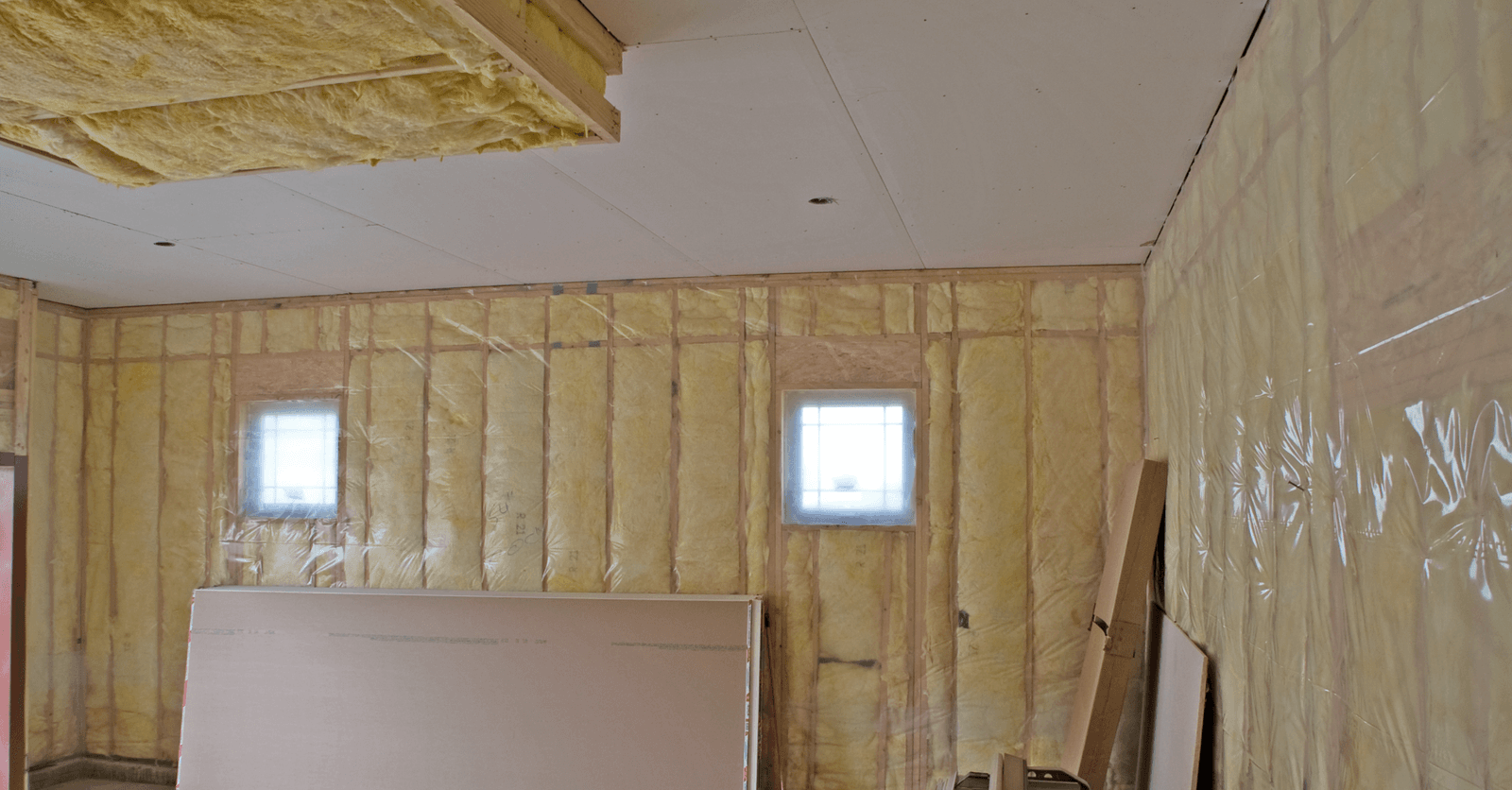
Source: Canva
Polyurethane made from the latest technology and extruded polystyrene are, without a doubt, the best materials to insulate a garage ceiling. However, if you’re looking to solely use eco-friendly materials in your home, cork is your best bet.
Learn more about the best garage ceiling insulation materials down below.
Polyurethane panel or polystyrene panel?
It all depends on the quality of the polyurethane material. If you come across polyurethane with a thermal conductivity of 0.026 rather than 0.035, it indicates that it’s a cutting-edge polyurethane technology; it’s more efficient than a polystyrene panel.
Otherwise, polystyrene will be a way better insulation material. Moreso because you can choose extruded polystyrene, or even better yet, expanded polystyrene.
Polystyrene and polyurethane panels have the added bonus of being aesthetically pleasing, while also cutting back on drywall use.
Rockwool
Mineral wools are far from the most efficient insulation, but they do have one significant advantage: their flexibility.
It isn’t uncommon to see piping snaking through a garage ceiling. Therefore, rockwool is the perfect material. Since it’s very malleable, it can easily be slipped between pipes.
As a result, you won’t need to install drop ceiling tiles to properly insulate your garage, which turns into significant space gain.
Vapour barrier
A vapour barrier is a must if your garage happens to be below a living space. Typically, the vapour barrier will be a part of the living space's flooring insulation system.
Cork
As we’ve already mentioned in the first part of the article: cork is an excellent insulation material for green homes. It ranks just below polyurethane and polystyrene.
However, cork has two issues:
Requires installing drop ceiling tiles
Isn’t made for winter
Therefore, if your garage ceiling is rather low, cork may not be the best insulation material. Generally speaking, in Quebec, where winters are quite harsh, cork doesn’t typically hold its own.
As a matter of fact, while it does have an exceptional thermal lag in terms of heat, its thermal conductivity and resistance (R-value) are deemed average.
How to DIY a Garage Ceiling Insulation
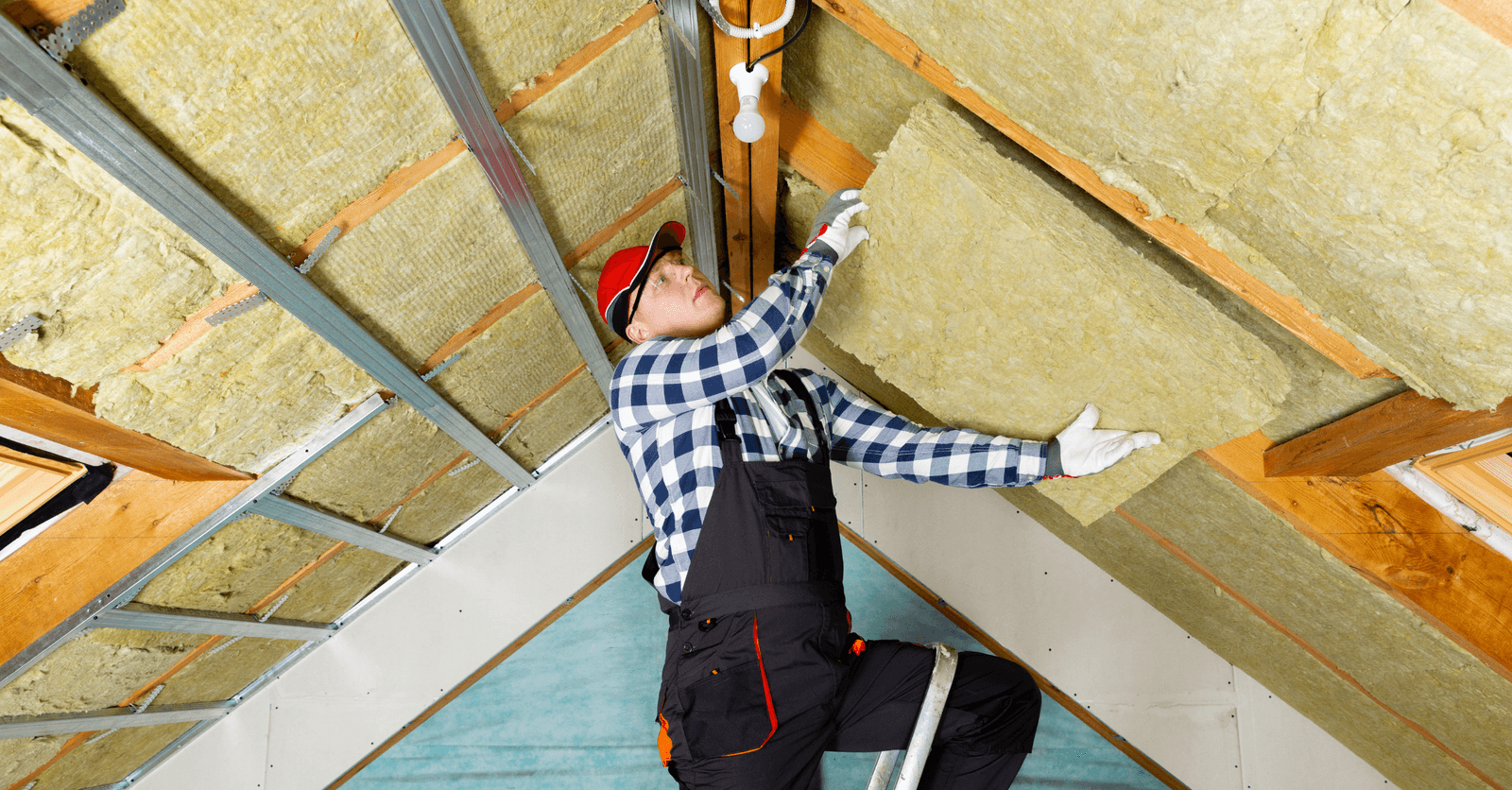
Source: Canva
There are three methods used to install insulation material on a garage ceiling:
Glue/screws
Drop ceiling (drop tiles or self-supporting membrane)
Spray
You can base your decision on:
Your preferred method
The height of your garage
The insulation material you’ve selected
For example, should you decide to opt for a spray-in method, polyurethane is your only option. Whereas, with a drop ceiling, you can use mineral wools, polystyrene, or polyurethane.
However, using the glue/screw method, for which the polystyrene panels are typically preferred, you’ll lose a significant amount of height in your garage.
Concrete Garage Ceiling Insulation Tips
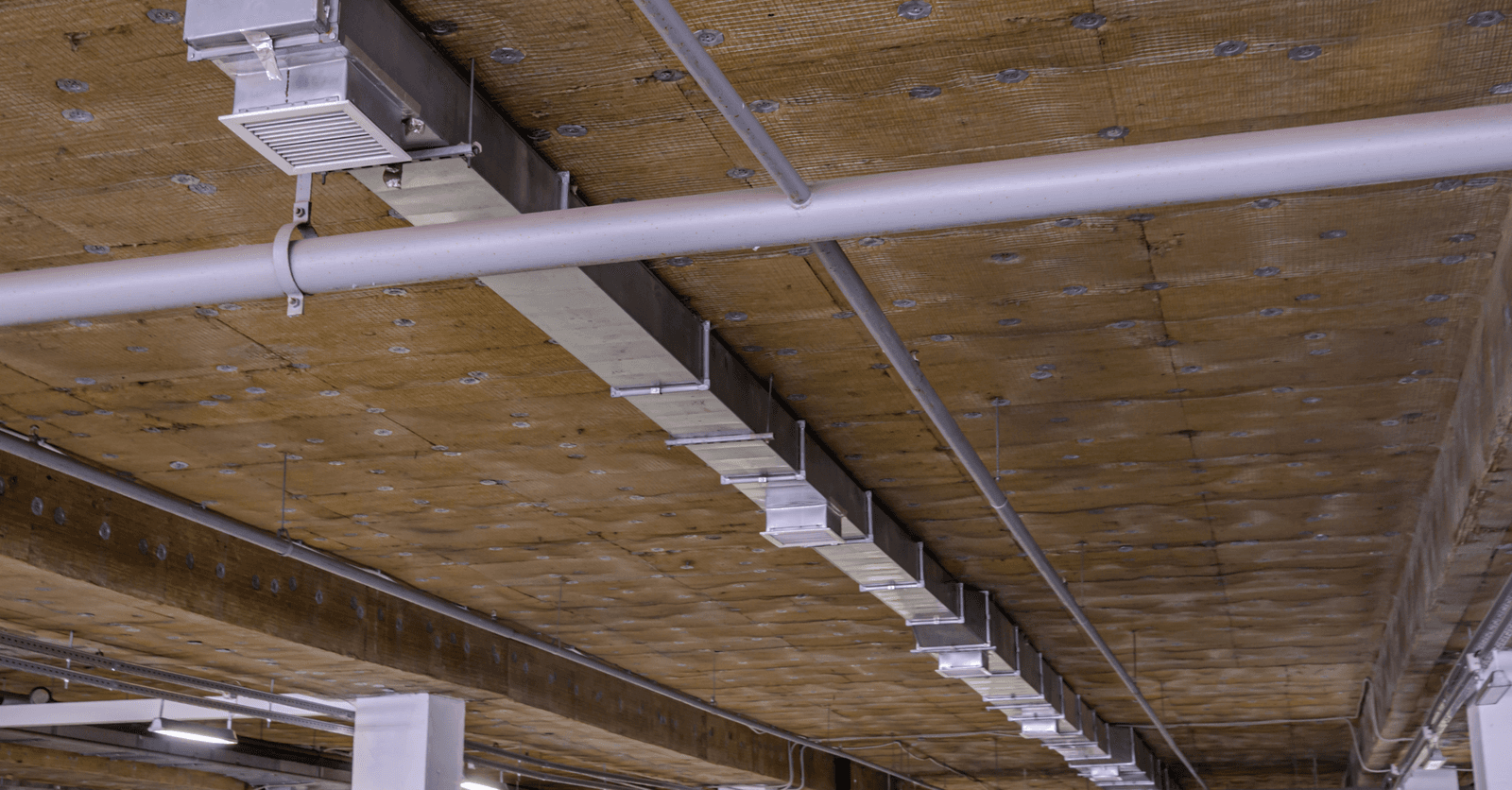
Source: Canva
Favour the following three insulation materials:
Polyurethane insulation panels
Extruded polystyrene insulation panels
Cork
If you’re not comfortable using the glue/screw installation method, note that a concrete garage ceiling can be insulated using spray polyurethane foam.
Get 3 quotes for your garage ceiling insulation project
RenoQuotes.com can help you get quotes for your insulation project. By submitting your project, we’ll put you in contact with top-rated contractors. Fill in the form on the homepage (it only takes a few minutes) and get estimates from trusted professionals.
Dial 1-844 828-1588 to speak with one of our customer service representatives.
Looking for something else?
Related articles
The latest industry news, interviews, technologies, and resources.
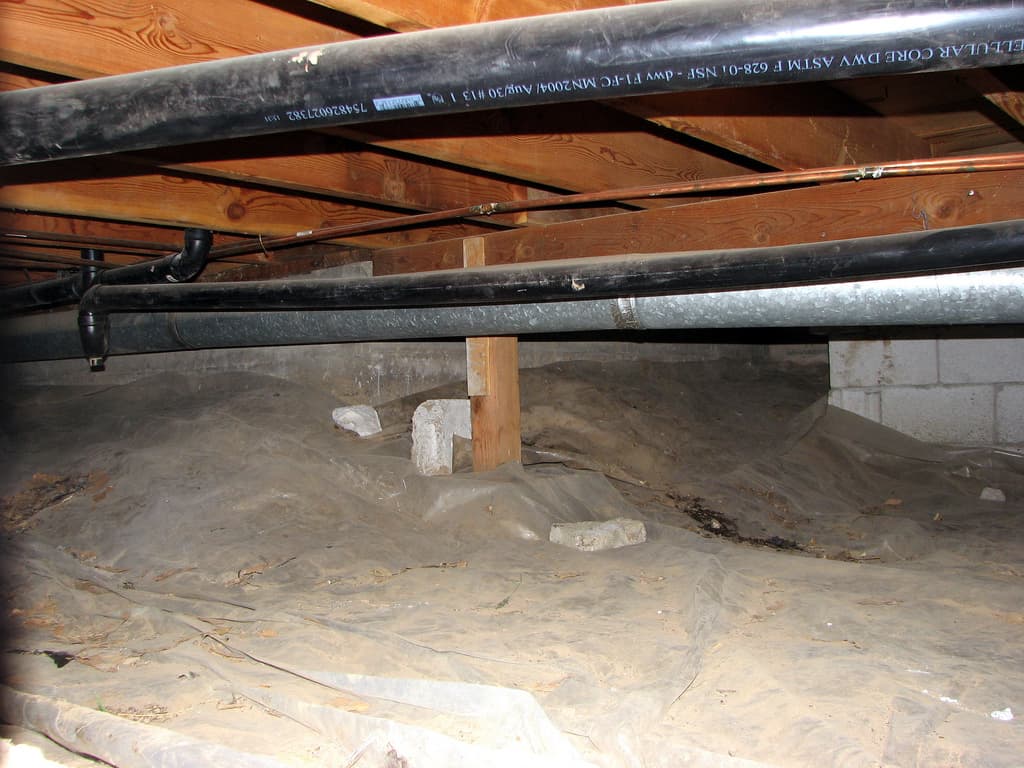
Editorial Team
•18 Apr 2024
Have you noticed the presence of traces of humidity in your crawl space? You're right to wince because a buildup of moisture is never good news.

Editorial Team
•08 Nov 2023
It’s hard to deny that basements and bathrooms are generally the dampest rooms in a home. Keeping up with maintaining these spaces can often be a challenge. It’s crucial to keep humidity and moisture levels as low as possible, as excess moisture will lead to deterioration as well as mould and mildew growth. So what methods can you put in place to keep these things at bay? Enter the vapour barrier.

Editorial Team
•08 Nov 2023
The sets of your favourite films can sometimes serve as an inspiration to transform your interior decor. Whether a period piece, a 1960s inspired environment or a more modern layout, there is always room to draw inspiration from these much-loved stories.

Amanda Harvey
•19 Apr 2024
Showering, bathing, hair drying and moist towels hanging from every fixture; all the activities that take place in the bathroom breed humidity.

Editorial Team
•08 Nov 2023
Suffice it to say, a sweating toilet tank is never welcomed. Between puddles of pooling water on the floor, to the unpleasant feeling of condensation in the air, mould growth, and a malodorous smell, using the restroom can quickly turn into something quite dreadful. Is your toilet tank humid without fail and you’re unsure how to fix this problem? A toilet tank anti-condensation liner kit will solve the issue in no time! Check out the following to learn more about it.